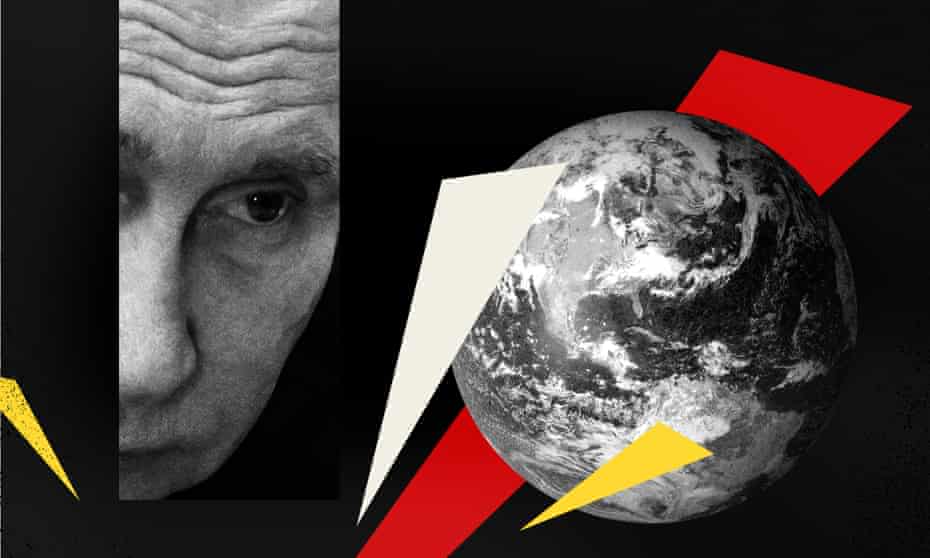Transparency is needed if sanctions imposed after invasion of Ukraine are to be properly enforced

Composite: Guardian
Juliette Garside
Mon
21 Mar 2022 16.30 GMT
Today, the Guardian and its reporting partners are launching the Russian asset tracker, the most comprehensive audit yet published of wealth held outside Russia linked to some of the country’s all-powerful oligarchs and officials.
We have examined the ownership of 145 assets, worth more than $17bn, comprising real estate, yachts, private jets and shares in businesses. The information, which dates from 2020 to the present and serves as a snapshot in time, was assembled in collaboration with the Organized Crime and Corruption Reporting Project, Süddeutsche Zeitung and 25 other news outlets.
The project was conceived in February, as the armed forces of the Russian Federation were massing near the borders of Ukraine. It begins with a list of 35 individuals named last year by the jailed opposition leader Alexei Navalny as “key enablers and beneficiaries of the Kremlin’s kleptocracy”. At the time, Navalny was urging tougher sanctions to curb Vladimir Putin’s influence.
Three weeks after the invasion, 27 of those individuals are subject to sanctions in the US and Europe. A further seven have been blacklisted in Canada. They are, in the language of the UK sanctions legislation, alleged to be “obtaining a benefit from or supporting the government of Russia”.
The Navalny list includes four of the wealthiest oligarchs, plus heads of state-controlled banks and energy companies, prominent broadcasters, spy agency chiefs, ministers, political advisers and regional governors. Over the coming weeks, the Russian asset tracker will expand to cover a wider group of sanctioned individuals.
Many have denied they are close to Putin or benefit from his regime. For now, however, their assets are frozen, they cannot be sold or used to generate a profit. There are severe restrictions on these individuals’ ability to travel, spend money and make use of their villas and penthouses.
In order to avert an escalation of the war in Ukraine, the UK and other governments are seeking to use financial measures to weaken Russia and punish those who profit from its economy. However, these sanctions will be effective only if they are enforced.
The wealth of oligarchs can be difficult to trace. While some investments, such as Chelsea football club, are held in full public view, many are not. Ownership is often obscured by shell companies and trusts, situated in tax havens.
That is why our journalists have pieced together data from a number of sources from the last six years, including offshore leaks published by the International Consortium of Investigative Journalists, and reports of suspicious banking transactions contained in the FinCEN files.
It is not illegal to hold wealth offshore, and there are legitimate reasons for doing so, such as privacy. However, the data we have examined shows banks have at times raised questions about unexplained wealth or the origin of funds passing through accounts.
Our research has extended to relatives and associates, because in some cases their wealth derives almost entirely from the person under sanctions. Including family gives a more complete picture of the scale of the fortune. In other cases, they could be used to hide or disperse assets – with wives holding shares on behalf of husbands, or trusted enablers acting as nominees.
The UK has recognised this, by imposing sanctions on some family members. In a statement issued on 26 February by the White House, western allies announced a transatlantic sanctions taskforce with a remit to pursue “officials and elites close to the Russian government, as well as their families, and their enablers to identify and freeze the assets they hold in our jurisdictions”.
The City of London has for years been criticised by politicians and campaigners for opening its doors to money of questionable origin in exchange for generous commissions paid to lawyers, auditors, and money managers.
To the government’s critics, this may explain why the UK was initially slower than other countries in its response to Ukraine, lagging behind the EU in blacklisting individuals.
At a time when ill-prepared and often under-funded law enforcement agencies are scrambling to identify who owns what, helping to expose hidden wealth and those who benefit from it is a vital task. It can prevent dispersal and encourage enforcement of the rules.
Since 2016, with the publication of the Panama papers, relentless media reporting has shown the need for greater transparency and regulation in the offshore world. Reform has been slow, and it has often met with political resistance. The difficulty in enforcing the latest sanctions suggests there are still many places to hide.
https://www.theguardian.com/world/2022/mar/21/russian-asset-tracker-publishing-ukraine-war-hidden-wealth-putin
No comments:
Post a Comment